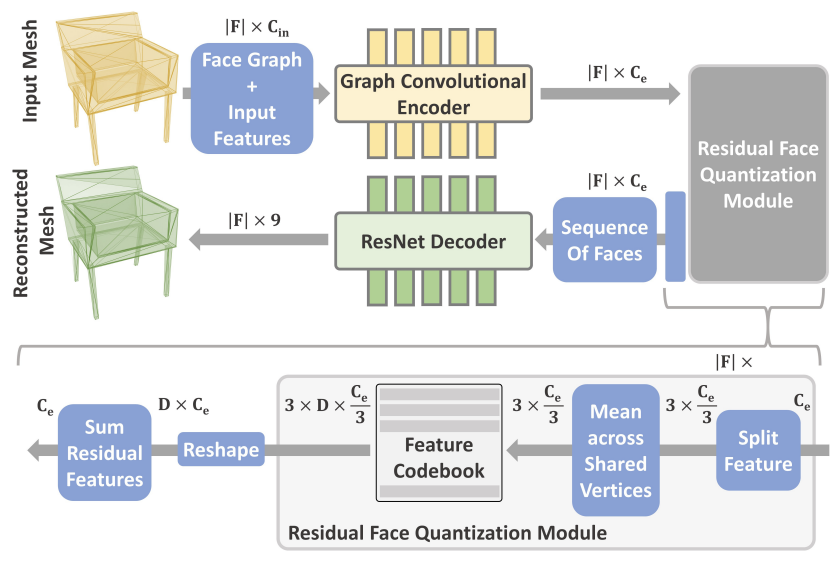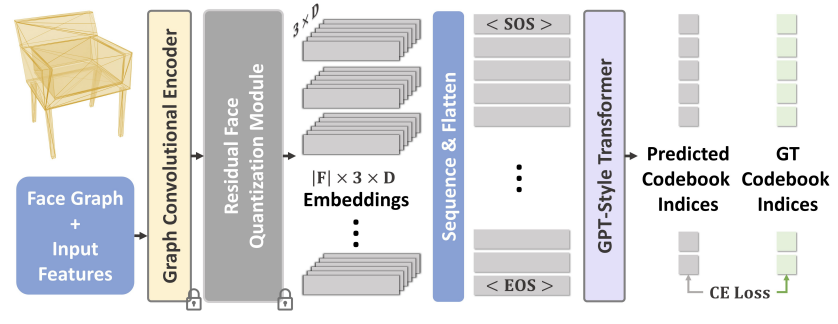Pytorch Implementation of MeshGPT: Generating Triangle Meshes with Decoder-Only Transformers
Requirements:
- Python 3.10, CUDA 11.4
- V100
wget http://shapenet.cs.stanford.edu/shapenet/obj-zip/ShapeNetCore.v2.zip
-
Dataset
- ShapeNetV2, 55 categories.
- Trained on all 55 categories, finetuned on
Chair,Table,Bench,Lamp - Preprocess
- Planar Decimation (Blender)
- angle tolerance
$\alpha \in [1,60]$ - Hansdorff distance closest and below
$\delta_{hansdorff}$
- angle tolerance
- Filter
- face num
$\leq$ 800 - resulting in 28980 in data size
- face num
- Train Test Split
-
Chair,Table,Bench,Lamp9:1
-
- Normalization
- centered at origin
- longest side = 1
- Augmentation
- Scaling [0.75, 1.25] at each axis, keep longest side = 1
- Jitter shift [-0.1, 0.1]
- Planar Decimation (PolyGen), varying levels, keep below
$\delta_{hansdorff}$
- Planar Decimation (Blender)
-
Model
- Codebook
- Sequence ordering (PolyGen)
- Face feature
$f_i$ - face =
${(x_1,y_1,z_1),(x_2,y_2,z_2),(x_3,y_3,z_3)}$ - 9 coordinates (positonal embedded)
- area
- angles between its edges
- face normal
- face =
- Mesh
$\mathcal{M} = (f_1,f_2,...,f_N)$ - Encoder E (a stack of SAGEConv Encoders)
$Z = E(\mathcal{}M)$
- Quantization (RQ)
- D=6 codes per face, each vertex D/3 code, 3 vertex
- mean pooling vertex, concatenate face
$T = RQ(Z)$ - Stochastic Sampling, Exponential moving average
- Decoder G (1D ResNet34)
$\mathcal{M} = G(Z)$ - classification of 128
- GPT
- Codebook
-
Training
- Encoder-Decoder: 2 A100 2 days
- GPT2: 4 A100 5days
- Adam, LR=$10^{-4}$, BATCHSIZE=64

